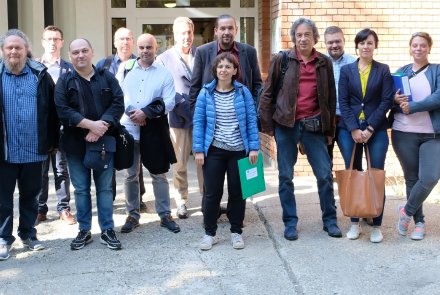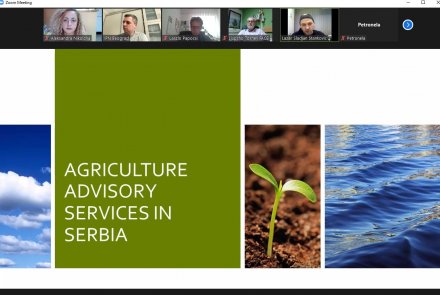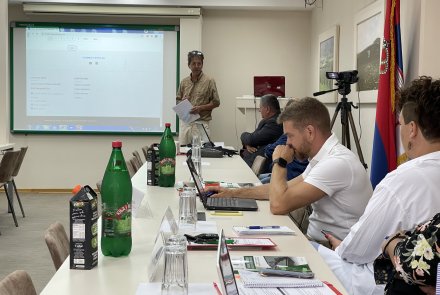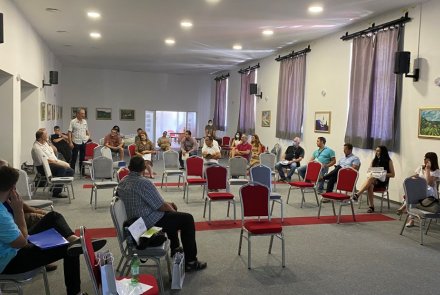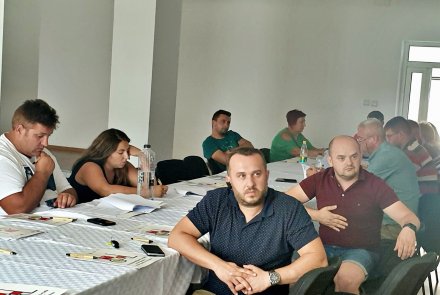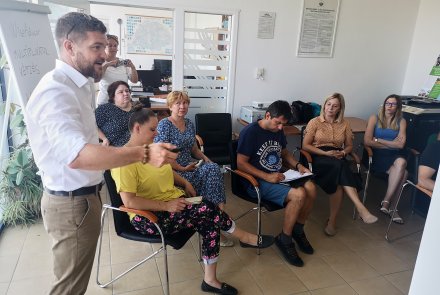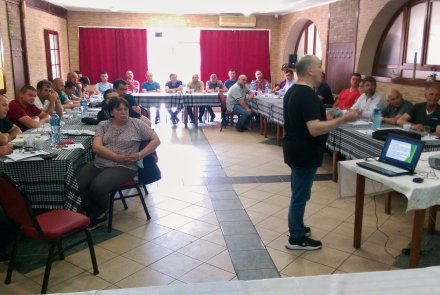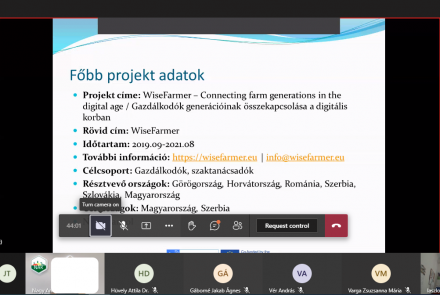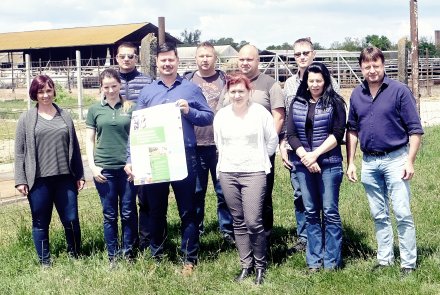Kick-off meeting of the project
More information, gallery: https://www.wisefarmer.eu/kick-hungary
Welcome and technical information about the services provided for partners during the meeting was given by the coordinator at the beginning of the event. The result of the application evaluation and short summary of revised budget and its consequences was briefly summarized, to be discussed in more details later.
The first day’s program continued with the self- introduction of the partners, presentations uploaded to the WiseFarmer Project Management Platform.
SZE operates a demonstration farms network, also has ongoing projects with active farmer contacts, which could be helpful to identify participants (both farmers and advisors) and later for dissemination. They are also involved in research of intergeneration themes in agriculture.
IPM presented several existing services for farmers and advisors, based on ICTs in Serbia, which should be seriously taken into account when designing learning content (O2) and the collaboration platform (O3) for successful pilot (O4), formulating problem solving oriented exercises, examples and good practices according to available services, therefore several of the offered content should be localized according the farming situations and needs of farmers in Serbia and Hungary.
IPN has a well-established and experienced network of data collectors for the EU compliant FADN – Farm Accountancy Data Network – that may serve as a valuable asset, with regards to proven techniques for the WiseFarmer survey, for example, how to motivate farmers and advisors to engage successfully in the project work steps.
SEASN, AUA, SZE are also members in various H2020 projects with which the WiseFarmer consortium plans to strengthen collaboration for the share of information, experience, and dissemination. For the next meeting it was suggested that partners involved will present the projects and opportunities.
After the partners’ introduction the coordinator provided an insight to the project background and concept, the WiseFarmer approach and principle, as well as the findings of the pre-application study. The results of the Impact+ Tool exercise were demonstrated, stressing the importance of mid- and long term impacts of the project, at the organizational, participatory, systemic and policy levels, as strategically highly relevant goals for all partners of the project.
The discussions were followed by the short presentations of each Output, delivered by the Output leaders.
AUA presented the plan for Quality Management in line with the proposal, but also recommending several professional and useful tools to better manage and assure the good quality of the project implementation, being part of the QM plan.
WAN presented the project management platform which is already set up and almost fully functional. Besides the public pages for all visitors – main project information pages to be translated to all partners’ languages during next week - , the ‘project intranet’ is also close to be ready, offering the Files module for documents, with proper project folder structure set up, the Webforms module for the collection of evaluations and questionnaires, and the Forum module for all communication exchanges between partners. Each partner had successfully registered, logged-in and checked the main modules of the platform from their own computers.
After the compulsory sections of the agenda was covered, partners continued with open discussions not only at the official session, but also during the social event in the Babat hunting lodge, on the carriage ride and the dinner. SZE and AUA stressed the risks of motivating and activating learner participants to successfully engage in the pilot, while IPN and GAK – regularly working in the field with farmers and advisors – shared some of their plans which can help to reach the desired outcome.
Day 2.
A discussion of the key early Outcomes, especially O1 occupied the majority of the second morning. The review of local knowledge and the use of digital tools is a crucial part of the project, as many later project activities will be built on the results. Before the group discussion, a short presentation summarized the main goals of the output, and also the planned activities:
- Explore the needs and the current capabilities of the target group (young and senior smallholders/family farmers) and possible participants
- Develop data collection methods – questionnaires and interview guidelines - and implement a survey in every participating country among smallholders and family farmers
- Based on the assessed results, training syllabus and learning content will be developed
The first part of the discussion was about the methodology of the data collection.
A preliminary guideline was also presented in the session. Participants agreed on the main topics of the guide (farmer and farm characteristics, local-regional characteristics and information environment of the farmers (including ICT usage)).
- Log in to post comments
